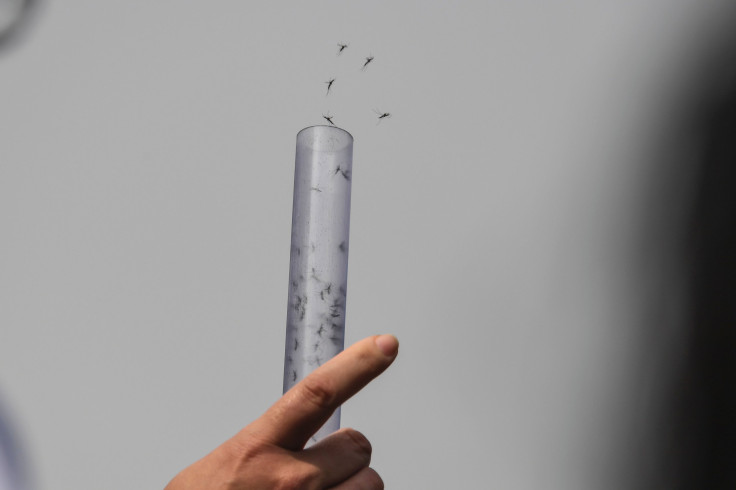First Case Of Zika Virus Being Transmitted Sexually Reported In Los Angeles

Los Angeles County Department of Public Health confirmed, Thursday, the first case of the Zika virus being transmitted sexually to a resident living in Los Angeles County.
According to a report by the Department of Public Health, a male resident who made a trip to Mexico, a country where the Zika virus was prevalent, began showing symptoms of the virus in early November 2017. After he returned to Los Angeles, his female partner also began showing symptoms.
The report stated that, in the county, vector control agencies performed routine tests on mosquitoes that can potentially carry the Zika virus. There were no cases of anyone getting the virus via local mosquitoes. However, from 2015, 122 cases of Zika infections were reported in the county. 121 of those cases showed the person was infected by a mosquito bite which took place while traveling to an area infested by Zika carrying mosquitoes.
Jeffrey Gunzenhauser, Interim Health Officer for the Los Angeles County said: "This case is a reminder to take precautions during sex or avoid sex if you or your partner have traveled to an area with risk of Zika."
"Sexual transmission of Zika can occur with or without symptoms. Given the risk for birth defects, the greatest concern is transmission of the virus to women who are pregnant or attempting to become pregnant," he added.
The report further stated that in order to avert sexual transmission of the virus, condoms should be used during sex. If the male partner showed symptoms of the virus, sexual activity should be avoided for a period of six months and in the case of a female partner, eight weeks. Women who are pregnant should also use condoms or avoid having sex for the entire duration of the pregnancy, the report said.
This news might be a bit concerning given that reports last year suggested the number of cases related to the virus were going down in the U.S.
According to a report in July 2017 by Democrat and Chronicle, New York reported 155 Zika infections in 2017 which was 56 percent lower than the number of cases at the same time in 2016. Similar scenarios were reported from other parts of the U.S. as well because the Zika virus was concentrated in one-time hot-spots within a period of 12 months. Hence, there were reduced chances of people picking up the virus, while traveling abroad.
The report also stated that apart from cases where the person came back with the virus from outside the U.S., there were no reports of local Zika transmissions till that point of time.
Dr. Paul Graman, Clinical Director of the Infectious Disease Division at Strong Memorial Hospital and Golisano Childrens' Hospital, said: "That’s an encouraging sign."
"People’s fear is that it had the potential to spread here," he added.
However, experts cautioned the virus was still a threat for the people who are living outside U.S. and to those who are traveling and also said that local transmission of the virus might still be a possibility.
© Copyright IBTimes 2024. All rights reserved.












